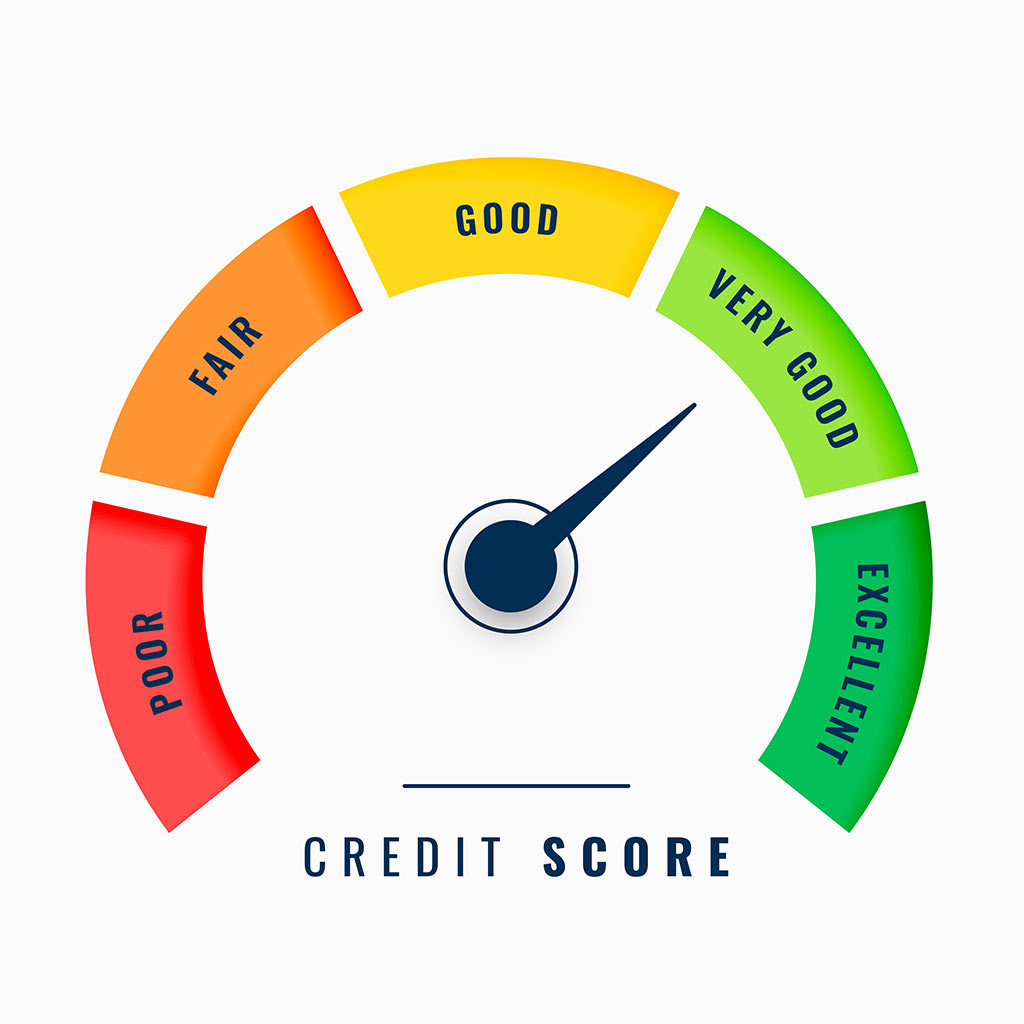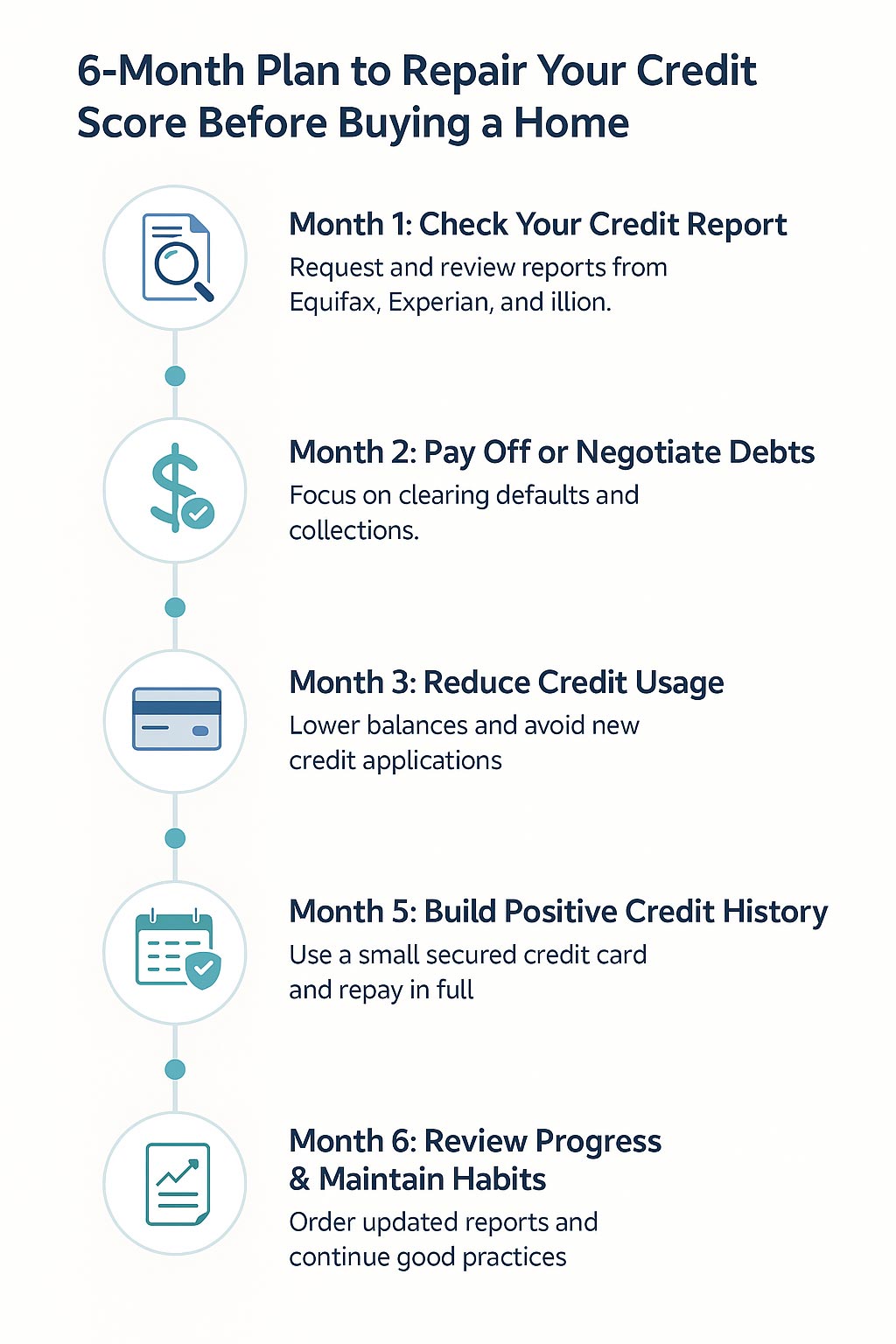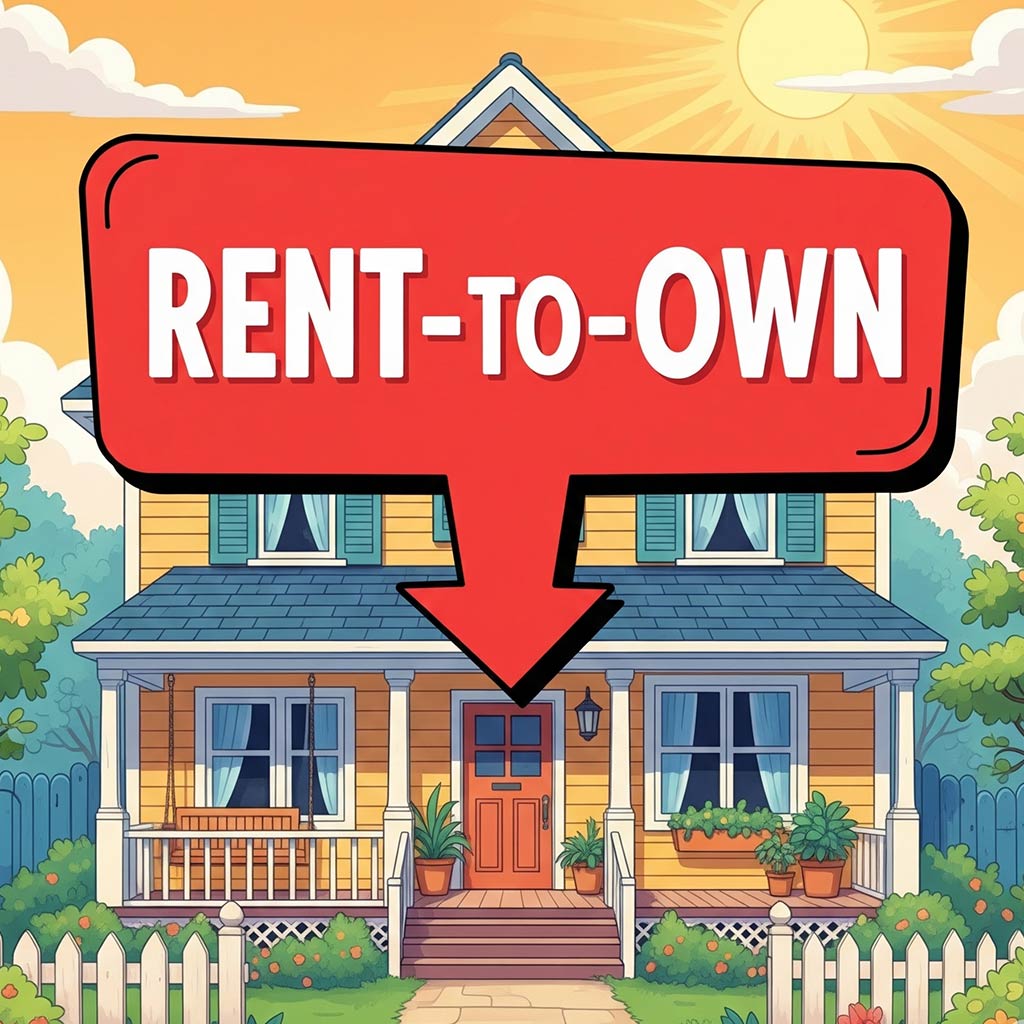Call Prakash Acharya
Call Amrit Lamsal

Buying your first home is an exciting milestone, but for many Australians, navigating the path to homeownership can feel overwhelming, especially when faced with a less-than-perfect credit history. The practical challenges of securing home loans with bad credit are real, but they are not insurmountable.
At Capkon Melbourne, we understand these hurdles. We’re here to support first home buyers through strategic credit repair Australia, connecting you with viable loan solutions, and exploring alternative pathways like rent-to-own schemes Australia. This comprehensive guide is designed to offer you practical solutions, from improving your credit score to understanding specialist lenders and innovative ownership models.
Why Credit Matters for First Home Buyers
Your credit score is a numerical representation of your financial behaviour and creditworthiness. In Australia, credit scores typically range from 0 to 1200 (though some agencies use 0-1000). The higher your score, the more reliable you appear to lenders. Understanding how to get a credit score and what it means is fundamental to your homeownership journey.

Here’s a general breakdown of credit score bands in Australia:
- Excellent: 800–1200 (or 800-1000 depending on agency) – You’re seen as a very low-risk borrower, likely to qualify for the best rates and terms.
- Very Good: 700–799 – You’re still considered a reliable borrower with good financial habits.
- Good: 625–699 – You’re generally seen as creditworthy, though you might not get the absolute lowest rates.
- Fair: 550–624 – You might face higher interest rates or fewer credit options.
- Poor: Below 550 – This score indicates a higher risk to lenders, often leading to loan rejections or very limited, higher-interest options.
Lenders view a lower score as a higher risk because it can signal past financial difficulties or a greater likelihood of future repayment issues. This directly impacts bad credit and mortgages, affecting your home loan approval, interest rates, and overall borrowing power in Australia. While there’s no official “minimum credit score” across all lenders, major banks generally prefer scores in the “Good” to “Excellent” range. A lower score means your options become significantly more limited, pushing you towards home loans for not-so-good credit from specialist lenders.
If you’re planning to grow your portfolio over time, this can also impact your ability to qualify for investment loans — check out our detailed investment property loan guide to understand how credit health affects future borrowing power.
What Is Considered a “Bad” Credit Score for Home Loans?
While the exact cut-off varies by lender, a “bad” credit score for home loans typically falls into the “Fair” (550-624) or “Poor” (below 550) ranges across the major Australian credit reporting agencies (Equifax, Experian, illion). Scores below 550 are generally considered problematic, as they indicate a higher risk of default from a lender’s perspective.
It’s important to remember that a poor score doesn’t mean rejection is guaranteed; it just significantly limits your options with mainstream lenders and often means you’ll be looking at home loans for bad credit from specialist providers who are more flexible but may charge higher rates.
What Is Credit Repair and How Can It Help You Buy a Home?
Credit repair Australia is the process of identifying and addressing negative or inaccurate information on your credit report to improve your credit score. It’s about cleaning up your financial history to present a more favourable profile to lenders.
Common reasons first-time buyers might have bad credit include:
- Missed Payments: Late or missed payments on credit cards, loans, or even utility bills.
- High Credit Utilisation: Using a large percentage of your available credit limit (e.g., maxing out credit cards).
- Collections: Accounts that have been sent to a debt collection agency.
- Defaults: When a payment is overdue by a significant period (e.g., 60-90 days), it can be listed as a default on your credit report.
- Thin Credit History: Not having enough credit accounts or a long enough history to generate a robust score.
- Too Many Credit Enquiries: Applying for multiple credit products in a short period can negatively impact your score.
- Bankruptcy or Debt Agreements: More severe financial events that have a significant and long-lasting impact.
By taking steps to fix your credit and repair your credit, you demonstrate to lenders that you are actively managing your finances. This can lead to better loan offers, lower interest rates, and ultimately, a smoother path to homeownership. Engaging in real credit repair or working with a credit clean Australia service can make a tangible difference.
How to Boost Your Credit Score in 6 Months
Improving your credit score takes time and consistent effort, but a targeted 6-month plan can make a significant difference for first-time buyers looking to secure a mortgage:

- Month 1: Check Your Credit Report.
- Action: Obtain a free copy of your credit report from Australia’s major credit reporting agencies (Equifax, Experian, illion). You are entitled to one free report per agency per year.
- Advice: Meticulously review each report for errors, inaccuracies, or unfamiliar accounts. Identify any negative listings (e.g., defaults, late payments, collections) and their dates. This is the crucial first step in understanding how to get your credit score up.
- Month 2: Pay Off or Negotiate Outstanding Debts.
- Action: Focus on clearing any small outstanding debts, particularly those listed as defaults or collections. If you can’t pay in full, contact the creditor to negotiate a payment plan or a “pay-for-delete” agreement (where the negative listing is removed upon payment).
- Advice: Prioritise debts with the highest interest rates or those that are most overdue. Confirm any agreements in writing.
- Month 3: Reduce Credit Card Utilisation & Avoid New Credit.
- Action: Pay down your credit card balances as much as possible, aiming to keep your credit utilisation (the amount you owe vs. your total credit limit) below 30% on each card.
- Advice: Avoid applying for any new credit (e.g., new credit cards, personal loans, buy-now-pay-later services). Each application results in a “hard inquiry” that can temporarily ding your score.
- Month 4: Set Up Payment Reminders and Automate Where Possible.
- Action: Ensure all your bill payments (utilities, mobile phone, loan repayments) are made on time, every time. Set up calendar reminders, direct debits, or automatic payments.
- Advice: Consistent, on-time payments are the most critical factor for improving your score long-term. Even one late payment can have a significant impact.
- Month 5: Consider a Small, Secured Credit Card (If No Other Credit History).
- Action: If you have a “thin” credit file (not much credit history), consider applying for a small secured credit card (where you provide a cash deposit as security). Use it for small purchases and pay it off in full each month.
- Advice: This helps build a positive payment history. Be disciplined – the goal is not to accumulate debt but to demonstrate responsible credit use.
- Month 6: Re-check Your Credit Report & Maintain Good Habits.
- Action: Order fresh credit reports to see the improvements.
- Advice: Continue all the good habits established over the past five months. A consistently positive payment history over several months is crucial for demonstrating financial reliability to lenders and significantly impacts how to improve your credit score.
These habits lay the groundwork for loan approvals, particularly if you’re planning to apply for home loans for first home buyers who often need to show financial stability even more clearly.
Bad Credit Home Loans for First-Time Buyers
While a perfect credit score certainly smooths the path, having bad credit home loans is a reality for many first-time buyers. The key is to be prepared, understand your options, and seek expert guidance to navigate this specialist area of lending. Even with a history of home loans for not-so-good credit, achieving homeownership is still within reach.
Common Features of Bad Credit Home Loans
Home loans with bad credit or bad credit home loans from specialist lenders typically have distinct features compared to traditional mortgages:
- Higher Rates: Lenders take on more risk, so they compensate by charging higher interest rates.
- Stricter Repayment Terms: You might face more frequent repayment schedules (e.g., weekly or fortnightly) to demonstrate consistent payment behaviour.
- Limited Refinance Flexibility: It can be harder to refinance a bad credit loan in the short term, though this improves as your credit history does.
- Shorter Loan Terms or Capped Loan Size: Some lenders might offer shorter maximum loan terms (e.g., 25 years instead of 30) or cap the maximum loan amount they’re willing to provide.
- Higher Fees: There might be additional fees, such as risk fees or establishment fees, reflecting the higher risk profile.
Who Can Benefit from a Bad Credit Home Loan?
Bad credit home loans and home loans for not-so-good credit can be a lifeline for various first-time buyers, including:
- First home buyers with defaults: Even a single default can impact mainstream lender approval, but specialist lenders may consider them after a certain period.
- Self-employed with tax debt: Those who have outstanding tax debts or haven’t filed recent returns may find options with specialist lenders who assess income differently.
- People recovering from bankruptcy: While a significant hurdle, some specialist lenders may consider applications a few years after discharge from bankruptcy or a Part IX Debt Agreement.
- Applicants with low documentation: For those who don’t have standard proof of income (e.g., recent payslips), low-doc options might be available.
- Individuals with multiple credit enquiries: If you’ve applied for a lot of credit recently, specialist lenders may be more lenient.
Can You Still Get a Home Loan with Bad Credit?
Yes, absolutely! It is possible to get a home loan with bad credit in Australia, especially with the strategic help from experienced brokers like Capkon Melbourne. While traditional banks might close their doors, the market for bad credit home loans is serviced by specialist lenders who take a more nuanced approach to risk assessment.
They consider factors beyond just your credit score, such as:
- Income Stability: A steady, reliable income stream is highly valued, even if your credit history has blemishes.
- Savings: A substantial deposit demonstrates financial discipline and commitment, which can offset a poor credit score.
- Reason for Bad Credit: Lenders are often more understanding if your bad credit was due to extenuating circumstances (e.g., illness, temporary job loss) rather than persistent financial mismanagement.
Who Are Specialist Lenders?
Specialist lenders are non-bank lenders or niche financial institutions that cater to borrowers who don’t fit the strict lending criteria of major banks. They assess loan applications on a case-by-case basis, focusing on your current capacity to repay and the story behind your credit history, rather than just an automated credit score.
While they may charge higher interest rates due to the increased risk, they offer crucial flexibility for borrowers with:
- Low credit scores: They have higher acceptance thresholds for adverse credit events.
- Previous defaults: They may consider defaults after a certain time has passed and if they are paid or being managed.
- Unusual income sources: They are more open to assessing self-employed income, contract work, or other non-standard income streams.
- Discharged bankruptcy or debt agreements: They often have policies for lending to individuals a few years post-bankruptcy.
Capkon Melbourne specialises in understanding the specific criteria of these specialist lenders and helps match clients with suitable options, ensuring you get a fair chance at securing a home loan.
Pros and Cons of Bad Credit Home Loans
Pros:
- Opportunity for Homeownership: Allows you to enter the property market when mainstream banks would decline you.
- Path to Credit Repair: Successfully managing a bad credit home loan can improve your credit score over time, opening doors to better rates in the future.
- Flexible Criteria: Specialist lenders are more willing to consider unique situations and less-than-perfect credit histories.
- Quicker Approval: Some specialist lenders can have faster approval processes due to their tailored assessment.
Cons:
- Higher Interest Rates: This is the most significant disadvantage, leading to higher repayments over the life of the loan.
- Additional Fees: May include higher establishment fees or risk fees.
- Stricter Terms: Potentially shorter loan terms or less flexible features compared to standard loans.
- Limited Choice: Fewer lenders and products are available in the bad credit space.
- Potential for High Costs: The overall cost of the loan can be considerably more due to higher rates and fees.
How to Repair Your Credit Before Buying a Home
Taking proactive steps to fix your credit and repair your credit before you even apply for a home loan can significantly improve your chances and potentially secure you a better deal. Here are some actionable steps:
- Paying Overdue Debts: Prioritise and pay off any outstanding debts, especially those that have gone into default or collections. This is crucial for a real credit repair.
- Consolidating Loans: If you have multiple smaller debts with high interest rates, consider a debt consolidation loan (if your credit score allows) to simplify payments and potentially reduce interest, helping you clean your credit record in Australia.
- Removing Unnecessary Credit Cards: Close unused credit card accounts, especially those with high limits, as they contribute to your overall credit utilisation even if you don’t use them. However, be cautious: closing your oldest account can shorten your credit history, which might slightly reduce your score. Discuss this with Capkon.
- Getting Credit Counselling if Needed: If you’re struggling with debt management, a financial counsellor can provide free, independent advice and help you develop a budget and repayment plan.
- Using Services like Capkon’s Credit Repair Partner Network: Capkon can connect you with trusted credit repair specialists who can help identify and dispute errors on your credit report and provide tailored strategies to improve your score. These services are often more effective than attempting to fix complex issues alone.
Rent-to-Own Schemes: An Alternative to Traditional Home Loans
For first-time buyers facing significant credit challenges or struggling with a deposit, rent-to-own schemes in Australia offer an alternative pathway to homeownership. This model provides a stepping stone, allowing you to secure a home with a view to buying it later.
What is a Rent-to-Own Scheme?
A rent-to-own scheme (also known as a lease-to-own or rent-to-buy) is a contractual agreement where you rent a property for a specified period with the option (or sometimes obligation) to purchase it at the end of the lease. It typically involves two stages:
- Rental Period: You live in the property as a tenant and pay regular rent. A portion of this rent, known as a “rent credit,” may be set aside or credited towards your future purchase price or deposit, effectively allowing you to buy while renting. You also typically pay an upfront “option fee” that secures your right to purchase.
- Purchase Option: At the end of the rental period (usually 2-5 years), you have the option (or are obligated) to purchase the property at a pre-agreed price, using any accumulated rent credits and your initial option fee as part of your deposit.

How Does Rent-to-Own Benefit First-Time Buyers?
- No Need for a Large Upfront Deposit: You can secure a home with a smaller initial payment (the option fee) than a traditional home loan deposit.
- Live in Your Future Home Now: You get to move into your desired property immediately, allowing you to settle into the neighbourhood and plan for your future.
- Build Your Credit and Savings During the Lease: The rental period gives you time to save a larger deposit and actively work on improving your credit score, making you a stronger candidate for a traditional mortgage when the purchase option comes due.
- Fixed Purchase Price: The purchase price is often agreed upon at the start of the contract, protecting you if property values in Melbourne increase significantly.
What Are the Risks?
While attractive, rent-to-own schemes come with risks:
- You may lose your option fee if you don’t buy: If you decide not to purchase the property at the end of the lease, or cannot secure finance, you typically forfeit your initial option fee and any accumulated rent credits.
- Responsibility for maintenance: Depending on the contract, you might be responsible for property maintenance and repairs, even though you don’t yet own it.
- Higher rent: The rent charged is often higher than the market rate, as it incorporates the “rent credit” component.
What to Watch Out for in a Rent-to-Own Contract
Legal protections for rent-to-own schemes in Australia can be complex, making due diligence crucial:
- Read the fine print carefully: These contracts are often complex. Ensure every clause is understood.
- Understand how much rent goes toward the purchase: Clearly ascertain what portion of your rent payments, if any, is actually credited towards the purchase price or deposit. This must be explicitly stated.
- Clarify who is responsible for repairs: Define whether you or the seller/developer is responsible for minor and major maintenance and repairs.
- Confirm whether the purchase is optional or mandatory: Some agreements are “lease-option” (you have the choice to buy), while others are “lease-purchase” (you are obligated to buy).
- Check the legal protections if you can’t proceed with the purchase: Understand the consequences if you are unable to secure a mortgage or decide not to buy. What happens to your option fee and rent credits?
- Getting professional advice is essential: Always seek independent legal advice and financial counselling before entering a rent-to-own agreement.
Should You Work with a Mortgage Broker or Credit Specialist?
When dealing with bad credit home loans or embarking on credit repair Australia, going it alone can be challenging and costly. Working with a dedicated mortgage broker or credit specialist, especially one experienced in these complex situations, offers significant advantages over approaching lenders directly:
Direct to Lenders vs. Broker:
- Direct to Lenders: You are limited to the products and criteria of that single institution. If your credit is challenged, a direct application to a major bank is likely to result in a rejection, which can further impact your credit score.
- Working with a Broker: A broker like Capkon Melbourne has access to a wide panel of lenders, including the specialist lenders who cater to borrowers with imperfect credit. We understand their specific niches and criteria, saving you time and preventing multiple credit enquiries that could harm your score. You can also better understand the mortgage broker cost involved in using our services and see how it compares to going directly to a lender.
How Capkon Melbourne Helps First-Time Buyers:
- Matching You with the Right Lender: We assess your unique situation and match you with lenders (including specialist lenders) most likely to approve your home loans with a bad credit application.
- Advising on Improving Eligibility: We provide tailored advice on how to strengthen your application, whether it’s through how to improve your credit score, managing existing debts, or presenting your financial situation in the best possible light.
- Reducing Paperwork and Stress: We guide you through the documentation process and handle the communication with lenders, simplifying what can be a very complex and stressful journey.
- Deep Experience with Credit-Challenged Borrowers: Our team has extensive experience helping clients overcome credit hurdles, offering practical solutions and empathetic support every step of the way.
Final Thoughts: Homeownership Is Still Possible with Bad Credit
The journey to homeownership for first-time buyers with bad credit can be daunting, but it is absolutely possible with a clear plan and expert help. Many individuals have successfully navigated these challenges, proving that a less-than-perfect financial past doesn’t have to dictate your future. The earlier you start your credit repair Australia efforts and seek professional advice, the better your chances of success.
Capkon Melbourne understands that everyone’s situation is unique. We are committed to navigating every step of your homeownership journey with you, even with poor credit, providing the guidance, solutions, and connections you need.
Let Capkon Melbourne Help You Start Your Homeownership Journey
Don’t let past credit issues deter your dream of buying your first home in Melbourne. Capkon Melbourne is here to empower you with the knowledge and support required to overcome financial obstacles.
Ready to take control of your credit and make your homeownership dream a reality? Book a free consultation with Capkon Melbourne today or reach out for personalised advice. Your journey to owning a home starts here.
FAQ Section
Can I get a mortgage with a 500 credit score?
- While a credit score of 500 is considered “Poor” by Australian standards and makes it challenging to get a standard home loan from major banks, it is not impossible. You would likely need to explore options with specialist lenders who are more flexible and assess your overall financial situation, income stability, and the reasons behind your credit score. Capkon Melbourne can help you find these lenders and prepare a strong application.
How long does credit repair take?
- The timeframe for credit repair varies depending on the severity of your credit issues. Minor errors can be corrected within weeks, while removing defaults or recovering from bankruptcy can take several months to a few years. However, you can often see significant improvements within 3-6 months by consistently implementing good financial habits and addressing negative listings.
Is rent-to-own safe for bad credit buyers?
- Rent-to-own schemes can be a viable alternative, but they come with risks and require careful due diligence. They are not regulated in the same way as traditional home loans, so it’s crucial to have the contract thoroughly reviewed by an independent lawyer. While they can provide a pathway to homeownership, you could lose money (like option fees) if you don’t proceed with the purchase. Professional advice from Capkon and a legal expert is essential to ensure it’s a safe and suitable option for your circumstances.
What documents do I need for a bad credit loan?
Similar to a standard home loan, you’ll generally need:
- Proof of identity (ID)
- Income verification (payslips, tax returns for self-employed)
- Proof of savings/deposit
- Details of existing debts and liabilities
- Bank statements (often for a longer period, e.g., 6 months)
- Explanation for your past credit issues. Capkon can help you prepare all necessary documentation to present your financial situation in the best light to specialist lenders.
Can I buy a house after bankruptcy in Australia?
- Yes, it is possible to buy a house after bankruptcy in Australia, but it generally requires a waiting period and specific criteria. Most lenders will require that you are formally discharged from bankruptcy, and many prefer a period of at least 2-3 years (and sometimes up to 7 years) post-discharge to demonstrate a stable financial recovery. Specialist lenders are the most likely option, and you will need a stable income and a clear deposit. Capkon Melbourne can advise on the specific timelines and lender requirements for your situation.
Do you need any Assistance in your loan?
We are here to help you.
